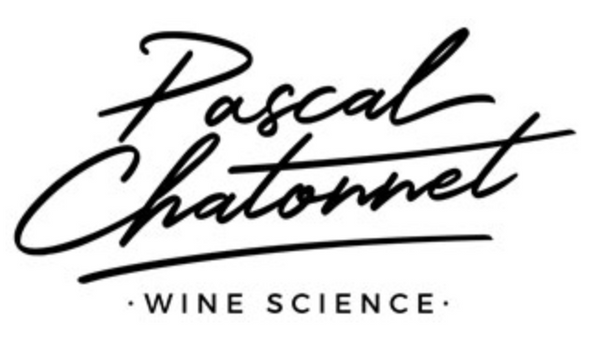
Wine is more a matter of philosophy than technique
Terroir = The primacy of Nature or the biodynamic sophism
The “philosophy of the land” would provide the opportunity to rethink the relationship between man and nature; the most advanced in this concept, the a priori bio-dynamists, recognize a “primacy of nature” by seeking to “activate life processes” without claiming to control them and by supporting natural processes in which they have placed their trust…
On the other hand, conventional or sustainable viticulture would enshrine the “primacy of man”, man would be stronger than nature and would like to become its master. The entire argument to demonstrate the originality or rather the primacy of the bio-dynamist vision systematically consists of violently opposing it to all others.
Human stupidity only knows the dilemma: friend or enemy, white or black, all or nothing.
We come to oppose the obscurantism of the thought of the ancient Greeks to the modern vision of the Age of Enlightenment. And yet, Greek thinkers well described man's ability to understand the laws of nature while knowing that their essential complexity made its mastery impossible and therefore this quest useless! The concept of primacy of nature in the authentic expression of terroir would therefore amount to denying the very definition of Terroir.
The biodynamic vision is a cosmic vision, the vine is part of a whole, an element of the cosmos that cannot be excluded from the cosmos. Biodynamic practices ensure the articulation of its forces so that the vine regains an ideal natural functioning, that of the forest.
But what is the role of man in all this? From a bio-dynamic point of view, man is part of the terroir-nature, but without superiority over nature. We are here in agreement with the modern definition of Terroir. No primacy of the plant, the mineral of the air or Man, but a total interaction. The definition of Terroir according to the INAO thus fully describes the situation: “The terroir is a delimited geographical space, in which a human community, builds over the course of its history a collective knowledge of production, based on a system of interactions between a physical and biological environment, and a set of human factors. The socio-technical itineraries thus brought into play reveal an originality, confer a typicality and result in a reputation, for a good originating from this geographical space.
In the same way as thinking that Man is above Nature, or deciding to exclude Man from Nature ex cathedra, the notion of “primacy of Nature” in the original expression of Terroir seems to me therefore inherently fallacious.
To try to account for the origin of the schism in the conception of man-nature relationships, it is necessary to identify throughout the history of men the different phases of their conception of nature and the actions which resulted from it (1).
A first conception of man-nature relationships dates back to prehistory until the advent of monotheisms. Nature seems “self-evident”, it is considered the spatial framework in which men, then very few in number, carry out their activities. Men are united with nature, this requires an exchange with more or less sacred forces, hence the establishment of rites respecting the different forms of life. Man conceives himself as part of nature as evidenced by the vast production of myths or animist cosmologies according to which all beings live in symbiosis in a receptive universe without any pre-eminence being particularly conferred on humans.
It is from this scale of values that different oriental civilizations are developed. In Hinduism, humans are part of the cycles of life, in the Chinese conception, they are part of nature, which does not prevent nature from being at their service.
The Western conception is articulated differently. It establishes a link of exteriority between man and nature, even if ancient Greek philosophy places the latter at the center of nature, he “thinks” himself in relation to it.
These are the monotheisms which will put nature at the service of man and legitimize his domination. The Bible speaks of creation and not of nature, this creator god, who designed us in his image, offers us the possibility of mastering nature through the technique by which we subject other species and resources to our needs. And Cartesianism goes even further by praising the technical power and science which provide us with the means to subdue nature to lead us back to paradise. Carried by a Promethean momentum (named after the hero who stole the secret of fire from the gods of Olympus in order to benefit humans), man places himself in a position of domination vis-à-vis nature.
In the Western vision, nature is “that which resists the will of man”. Fundamentally, nature is other, it has its own logic. Organisms and ecosystems self-regulate with no other purpose than to maintain and reproduce. They obey their own needs. Contemporary times have produced a new scientific framework which allows us to understand the functioning of nature in order to exploit it more effectively. Darwinism, scientific materialism, ecology, revolutionize the conception of time at the moment when the earth becomes a finite world unified by man, who must, as a result, reinvent “wild nature”.
Eastern civilizations have a different scale of values. In Hinduism, humans are part of the cycles of life, in the Chinese conception, they are part of nature, which does not prevent nature from being at their service.
All this testifies to an incapacity of human societies to completely control the natural element; hence the need to rethink human-nature relationships. The posture, which gives preponderance to one or the other, prevents us from perceiving “uniduality” (to use Edgar Morin’s expression (2)) or, as Andy Fisher says, from feeling “ unity-within-separation, similarity-within-difference, continuity-within-discontinuity” (3) .
Finally, can we think that Nature is necessarily benevolent, super-thinking, that it has a necessarily superior and perfect design? Could there be a sense of History, which Kant called “Nature’s design”, pursued unconsciously (5)?
From my point of view, the questioning thus formulated is vain and typical of an anthropocentric vision! Why would nature necessarily want good or bad from us? This always excludes Man from Nature.
The multicentric vision makes it possible to raise the debate a little by taking into consideration the individual as does biocentrism (with regard to each living being) or anthropocentrism (only with regard to each human being), while also taking into consideration species and ecosystems as ecocentrism does.
“The complexity of the multicentric vision cannot be expressed adequately without resorting to dialogical democracy, which seems the best defense against a return to totalizing discourses(6). »
To move in the direction of the multicentric vision, it is necessary to give room to the plurality of points of view, without fearing the conflicts that may result. Within the framework of the debate, the antagonists must be heard if we want to allow a position to emerge which does not exclude any term. This path of opening finds its point of support in the recognition of otherness: taking into account the other, respecting their difference, listening to what is particular to them.
In the fields of viticulture and wine, if nature took precedence over the designs of man, the European Vitis vinifera vine would have disappeared under the hickeys of American phylloxera, its grapes would naturally be destroyed by Downy mildew and Powdery mildew (always American), the product of their fermentation would result in an oxidized wine (because it is sulphite-free), typified by the “phenolic” aromas of Brettanomyces which would inevitably evolve, thanks to Acetobacter, towards a bad vinegar… None of this would allow the Terroir to improve speak out.
Wine from vine cultivation is a strictly cultural product and not a natural one! But this is in no way a reason to invoke or justify any supremacy of Man over his ecosystem environment.
“Man must stop seeing himself as master and even shepherd of nature… He cannot be the only pilot. He must become the co-pilot of nature which itself must become his co-pilot(4). » (E. Morin)
“Wine is more a matter of philosophy than technique” (Henri Jayer quoted by Jacky Rigaux)
http://edu.mnhn.fr/mod/page/view.php?id=1408
Method IV. Ideas: their habitat, their life, their morals, their organization, Seuil, Paris, 1991
Andy Fisher, Radical ecopsychology, Psychology in the service of life, State University of New York Press, 2002
Edgar Morin, The Method II: The Life of Life, Paris, Seuil, 1980
Idea of a universal history from a cosmopolitical point of view. KANT (1784)
The boreal forest, eco-advice and complex thinking. Understanding humans and their natures to act in complexity, European University Editions, 2011
